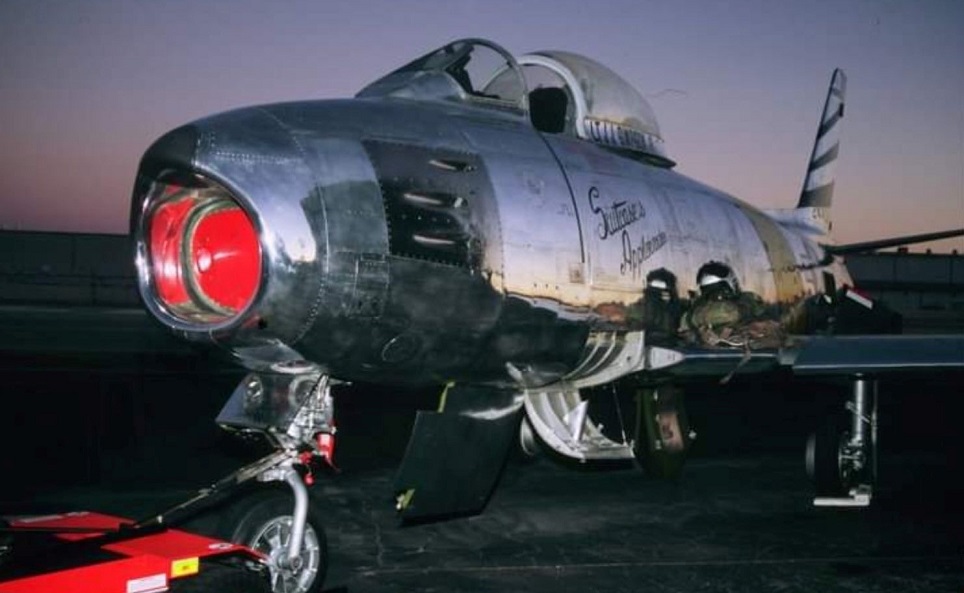North American F-86 Sabre Jet
The North American F-86 was the first swept-wing airplane in the U.S. fighter inventory.
Four models of the craft (F-86A, E, F and H) were day fighters or fighter bombers, while the F-86D, K and L versions were all-weather interceptors.
The forerunner of the operational Sabre was the XF-86, first flown Oct. 1, 1947 and became the first aircraft to fly at Mach 1 in a routine flight. More than 6,000 F-86s were manufactured by North American’s Los Angeles and Columbus, Ohio, divisions. The airplane was used by the air forces of 20 other nations, including West Germany, Japan, Spain, Britain, and Australia.
Various models of the Sabre held world’s speed records for six consecutive years, setting five official records and winning several National Aircraft Show Bendix Trophies.
As a day fighter, the airplane saw service in Korea in three successive series (F-86A, E, and F) where it engaged the Russian-built MiG-15. By the end of hostilities, it had shot down 792 MiGs at a loss of only 76 Sabres, a victory ratio of 10 to 1.
The major production version of the day-fighter Sabre was the F-86F. The F-86F Sabre was basically a more powerful version of the F-86E, being powered by the 5910 lb.st. J47-GE-27 engine in place of the 5200 lb.st. J47-GE-13.
The Museum’s F-86 (serial number 55-3937) was built in 1952 for the Japanese Air Self Defense Force (JASDF) and was the last F-86 in its inventory.
F-86 Specifications
| Manufacturer | North American Aviation, Los Angeles, CA. |
| Number Built | Over 2500 |
| Wing Span | 37 ft. 1 in. |
| Overall Length | 37 ft. 6 in. |
| Overall Height | 16 ft 11½ in |
| Speed (Maximum) | 650 mph |
| Weight, Empty | 10,890 lb. |
| Weight, Max T.O. | 20,357 lb. |
| Altitude (Maximum) | 49,000 ft. |
| Power plant | General Electric J47-GE-27 of 5,910 lb. thrust |
| Armament | Six .50 cal. machine guns 16 five-inch HVAR rockets (external) or 2,000 pound bomb load |

